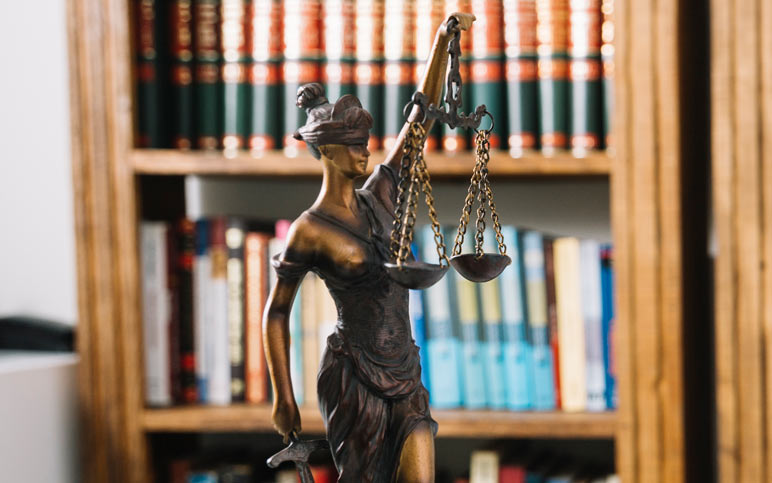Judicial Independence and Executive Interference: A Case Study of Pakistan
Introduction
Judicial independence is a cornerstone of democracy, ensuring that the judiciary functions free from external pressures, particularly from the executive branch. It upholds the rule of law, guarantees fair trials, and protects fundamental rights. However, in many countries, including Pakistan, executive interference has significantly undermined judicial autonomy. This essay explores the concept of judicial independence, the meaning and impact of executive interference, the advantages of an independent judiciary, and ways to strengthen judicial autonomy in Pakistan. It also examines the current situation and its negative impact on the people of Pakistan.
Definition of Judicial Independence
Judicial independence refers to the judiciary’s ability to make impartial and fair decisions based on the law, without influence from the government, political entities, or any external forces. It ensures that courts operate freely, interpreting and applying laws without fear or favor. Judicial independence consists of two major aspects:
- Institutional Independence – The judiciary as an institution remains separate from other branches of government, particularly the executive and legislative branches.
- Individual Independence – Judges are free from undue influence, allowing them to decide cases based on legal principles rather than political or personal pressure.
The independence of the judiciary is crucial for upholding democracy, maintaining checks and balances, and ensuring justice for all citizens.
Meaning of Executive Interference
Executive interference occurs when the executive branch of the government unlawfully or unduly influences the judiciary. This interference can take various forms, including:
- Appointments and Transfers – The executive controls judicial appointments and transfers, thereby manipulating judicial outcomes.
- Financial Control – Lack of financial autonomy affects the functioning of courts.
- Political Pressure – Judges are pressurized through coercion, intimidation, or incentives to make decisions favorable to the ruling government.
- Misuse of Contempt Laws – The executive uses legal and extralegal means to suppress judicial independence.
In Pakistan, executive interference has significantly compromised judicial neutrality, leading to biased rulings and erosion of public trust in the legal system.
Benefits and Importance of Judicial Independence
A free and independent judiciary provides numerous benefits to a nation:
- Ensures Rule of Law – An independent judiciary guarantees that laws are applied uniformly to all citizens, ensuring justice without discrimination.
- Prevents Abuse of Power – It acts as a check on the executive and legislative branches, preventing authoritarianism.
- Strengthens Democracy – A free judiciary safeguards fundamental rights, ensuring that democratic principles are upheld.
- Encourages Economic Growth – Investors are more likely to trust a system where commercial disputes are resolved fairly.
- Protects Human Rights – Judiciary ensures that citizens’ rights are protected against state abuse.
- Enhances Public Confidence – People trust courts when they function independently and deliver unbiased verdicts.
How Judiciary Can Be Free from Executive Control
Strengthening judicial independence requires structural and procedural reforms. The following measures can help ensure a free and fair judiciary in Pakistan:
- Transparent Appointment System – A judicial commission, rather than the executive, should oversee the appointment of judges.
- Financial Autonomy – The judiciary should have a separate budget to prevent financial manipulation by the executive.
- Security of Tenure – Judges should have guaranteed job security to prevent undue pressure.
- Strict Implementation of the Doctrine of Separation of Powers – The three branches of government must operate independently.
- Judicial Review Powers – Courts must have the authority to nullify unconstitutional acts by the executive.
- Media and Public Support – Public awareness and media scrutiny can discourage executive overreach.
- International Oversight and Legal Reforms – Engaging international bodies to ensure compliance with global judicial independence standards.
Current Situation of Judicial Independence in Pakistan
Pakistan’s judiciary has historically faced challenges in maintaining its independence. Various governments, both democratic and military, have sought to exert influence over the judiciary. Some key instances of executive interference include:
1. Historical Cases of Interference
- Doctrine of Necessity – The judiciary has legitimized military takeovers in Pakistan, compromising its independence.
- Zulfikar Ali Bhutto Case (1979) – The controversial death sentence of former Prime Minister Bhutto under General Zia-ul-Haq’s regime reflected political manipulation of the judiciary.
- Judicial Sackings under Musharraf (2007) – Chief Justice Iftikhar Chaudhry was unlawfully removed by the military ruler Pervez Musharraf, demonstrating direct executive interference.
2. Recent Challenges to Judicial Independence
- Political Pressure on Judges – Allegations of forced judgments in politically sensitive cases remain prevalent.
- Arrest and Intimidation of Judges – Incidents of harassment and pressure on judges handling high-profile cases.
- Executive Control over Judicial Appointments – Government influence over the appointment of judges to key positions continues to threaten neutrality.
- Selective Accountability – The judiciary is often used as a tool for political engineering rather than impartial justice.
3. Role of the Establishment
Pakistan’s judiciary has often been accused of favoring the military establishment. There have been cases where judicial decisions appeared to be influenced by non-democratic forces, raising questions about the true independence of courts.
Negative Impacts of Executive Interference on the People of Pakistan
The consequences of executive interference in the judiciary are severe and far-reaching. Some major adverse effects include:
- Erosion of Public Trust – When courts are perceived as biased, citizens lose faith in the legal system.
- Injustice and Political Victimization – Political opponents are selectively targeted, undermining fair trials.
- Increased Corruption – Lack of judicial oversight enables unchecked corruption in government institutions.
- Suppression of Civil Liberties – Citizens’ rights, such as freedom of speech and assembly, are curtailed when courts favor the executive.
- Economic Uncertainty – Investors hesitate to engage in business activities in a country where judicial decisions are unreliable.
- Weakened Democratic Institutions – A compromised judiciary weakens the system of checks and balances essential for a democratic setup.
Conclusion and Recommendations
Judicial independence is fundamental to democracy and the rule of law. In Pakistan, executive interference has historically weakened the judiciary, leading to biased rulings, political victimization, and a loss of public confidence. To ensure judicial autonomy, Pakistan must implement comprehensive reforms, including:
- Establishing a truly independent judicial commission for appointments.
- Ensuring financial autonomy for the judiciary.
- Strengthening the separation of powers doctrine.
- Encouraging public and media oversight to hold the executive accountable.
- Protecting judges from political and military pressures.
Only by addressing these challenges can Pakistan establish a fair and independent judiciary that serves justice impartially and upholds the rule of law for all citizens.




1 Comment
Based on my research, after a the foreclosure home is bought at an auction, it is common to the borrower in order to still have any remaining unpaid debt on the personal loan. There are many lenders who attempt to have all service fees and liens repaid by the subsequent buyer. Nonetheless, depending on a number of programs, laws, and state laws and regulations there may be several loans that aren’t easily fixed through the switch of financial products. Therefore, the duty still lies on the debtor that has acquired his or her property in foreclosure process. Many thanks sharing your thinking on this blog site.